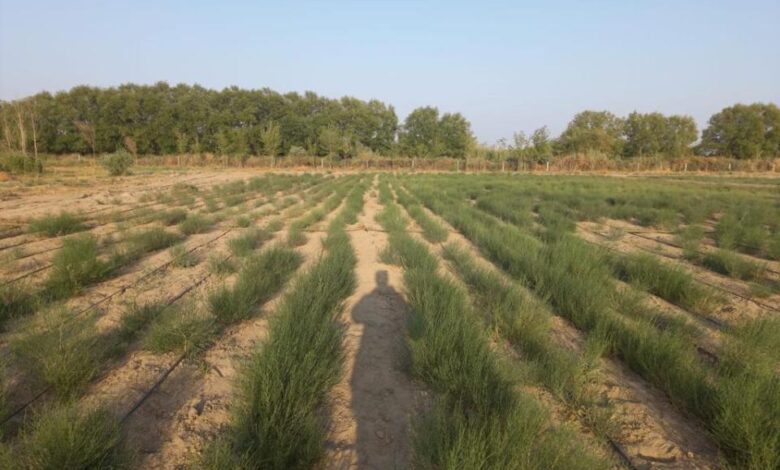
To address environmental concerns, the President of Republic of Kazakhstan Kassym-Jomart Tokayev has mandated extensive forest reclamation efforts on the desiccated bed of the Aral Sea, known as ODAM. The goal, set until 2025, involves the creation of saxaul plantations covering a vast area of 1.1 million hectares
The endeavor focuses on implementing scientifically-backed methods, including mechanized sowing and planting, to ensure the maximum survival rate of saxaul in the challenging saline conditions of the Kazakh side of the Aral Sea basin. Soil surveys covering 753 thousand hectares have been conducted, guiding the selection of appropriate species for planting.
Under the collaborative efforts of the Ministry of Ecology and Natural Resources of the Republic of Kazakhstan and the regional administration of Kyzylorda, an impressive 544.5 thousand hectares of forest have been planted in the last three years. Undeterred by the scale of this achievement, plans for the current year aim to extend this initiative with an additional 275 thousand hectares.
Recognizing the global significance of the Aral Sea’s drainage issue, Kazakhstan is engaging with international organizations such as the International Fund for Saving the Aral Sea (IFAS), the World Bank, GIZ, USAID, Korea Forest Service, and others to foster collaborative solutions.
The exchange of expertise between specialists from Uzbekistan and Kazakhstan in planting saxaul and other trees at the Aral Sea’s bottom during 2021 culminated in a Memorandum of Cooperation. This agreement strengthens collaboration in the field of forestry within the Aral Sea region.
To enhance the planting process on saline and sandy soils, science advocates for the use of various technologies. An experimental plot covering 150 hectares is dedicated to exploring methods like planting with a closed root system and seed sowing with growth stimulants like hydrogel.
In a forward-looking move, plans are underway to construct a forest nursery on the bottom of the Aral Sea, covering 33 hectares. This nursery will serve as an experimental hub for the Republican State Forestry Selection and Seed Center, housing a genetic bank of forest seeds, including saxaul seeds destined to become the primary species in the artificial forests of the Aral Sea’s drained basin.”



